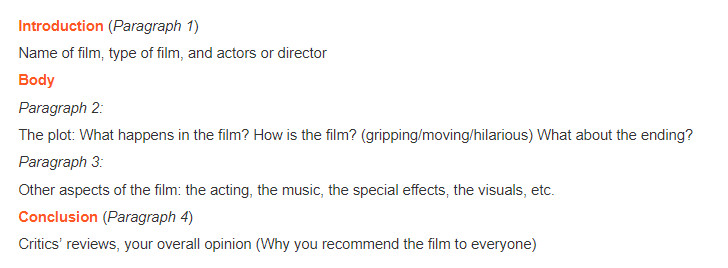Dear Neha,
Hope you are doing great. I still miss my time with your children who are so adorable and amiable. I must say I had a great time with you last summer. Today I am writing to ask you for a recipe that I am planning to include in a party menu.
Recently I have moved to a new apartment at Utica, a city in the Mohawk Valley, New York and I have a plan to invite some friends and neighbours to a party I am thinking to hold in September. It would be a dinner party and I will invite around 25 guests. Many of my friends are from Asia and I am planning to add a special Asian food. I am so fond of your fried spring rolls, you make it really special, and would like you to provide me with the recipe. I have tried it several times but never had the glimpse of the magnificent aroma and taste that you can bring in. Would you please send me detailed instructions, ingredient list and cooking method you employ for the fried spring rolls you make?
I want to give the Asian guests a fabulous experience of the dinner and invite some neighbours to taste it to give an impression of how Asian cuisines can win their stomach and heart!
Các bạn ơi các bạn hãy viết phần thư phản hồi lại cho người đó bằng tiếng anh nha



1. Cách viết thư hồi âm bằng tiếng Anh
Cấu trúc thư gồm các phần sau:
1.1. Heading
Heading hay còn gọi là tiêu đề. Phần này sẽ là tên của bức thư mà bạn muốn gửi. Viết về chủ đề nào thì tên tiêu đề theo chủ đề đó.
1.2. Inside address
- Thông tin người viết: Địa chỉ, điện thoại, fax hay địa chỉ hòm thư (e-mail) được đặt đầu thư, ở chính giữa hoặc bên phải bức thư.Tránh dùng tên riêng của bạn trừ khi đây là thư từ cá nhân vì khi viết thư giao dịch, người viết thường dùng tên công ty.
- Ngày tháng: Trong tiếng Anh bạn nên chú ý khi viết ngày tháng. Người Anh sẽ viết ngày trước tháng sau (04/ 02/ 2000) còn người Mỹ lại viết tháng trước ngày sau (02/ 04/ 2000). Để tránh hiểu nhầm bạn nên viết đầy đủ thứ ngày tháng năm như: 4 February 2000 hoặc February 2nd, 2000). Cách viết này không chỉ tránh nhầm lẫn mà còn lịch sự hơn cách chỉ dùng số.
- Tên và địa chỉ người nhận: Cách trình bày tên, chức danh, tên công ty, và địa chỉ giao dịch của đối tác (người nhận) giống như cách bạn trình bầy tên công ty của bạn và các thông tin liên quan ở đầu thư. Chỉ có một điểm khác là những thông tin về người nhận được đặt ở bên trái thư hay vì bên phải hay chính giữa.
- Cách xưng hô đầu thư: Ví dụ: Dear Mr. Smith Dear Mrs. Smith Dear Miss Smith Dear Ms. Smith Dear Sir Dear Madam Dear Sirs Dear Gentlemen
1.3. Body
- Phần thân của bức thư được trình bày thành khối với những đoạn văn mạch lạc , rõ ràng trình bày thông tin mà bạn muốn chuyển tới người đọc. Đầu dòng sẽ bắt đầu từ lề trái, không thụt vào như cách viết thư trước đây.
- Đây là phần nội dung chính, nói chi tiết theo chủ đề mà bạn viết.
1.4. Complimentary close
- Phần cuối thư nếu giao dịch với những người bạn không quen, người Anh thường dùng những cụm như: Yours sincerely, Yours faithfully, Yours truly.
- Kèm thêm chữ ký và họ tên đầy đủ của người viết.
- Trong trường hợp có tài liệu gửi kèm theo thư, bạn có thể viết cuối thư ghi chú về số lượng tài liệu gửi kèm. Ví dụ: Enc: 2..
2. Một số lưu ý khi viết thư hồi âm bằng tiếng Anh
- Không viết tắt: Phải viết đầy đủ I am, I will, I have seen, I do not, … không được viết I’am, I’ll, I don’t, I’ve seen.
- Không sử dụng từ thông tục, tiếng lóng, các từ thân mật ví dụ như: wanna, kid, dad, mate… trừ các bức thư đã quá thân mật.
- Hãy lễ độ dù cho đang bực tức: dùng Dear ở đầu thư, và dùng please khi muốn yêu cầu.
- Hãy viết cho ngắn gọn, nhưng đủ ý. Câu văn cũng vậy, ngắn, không dùng câu phức với 3, 4 mệnh đề (complex sentense). Câu phải có đầy đủ subject, verb, direct object và indirect object nếu có.
- Hãy nhớ dùng và dùng chính xác các dấu chấm câu: chấm, chấm phẩy, phẩy, dấu hai chấm. nếu 1 ý chính có nhiều ý phụ, dùng dấu gạch đầu dòng. Hạn chế dùng hoặc tuyệt đối không dùng dấu chấm than (!).
- Cuối thư: Regards, Best Regards, Hai cách này dùng thông dụng trong nhiều tình huống. Sincerely Yours, Dùng trong thư xin việc, thư khiếu nại, thư mời vì mang nghĩa “chân thành”. Faithfully Yours, Dùng trong thư trả lời của nhà cung cấp cho khách hàng, vì mang nghĩa “trung thành”.
bn muốn viết thư hồi đáp như thế nào thi viết = tiếng việt trước
sau đó lên gg dịch rồi chuyển thành tiếng anh
vậy là viết đc rồi đó